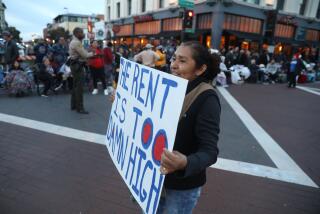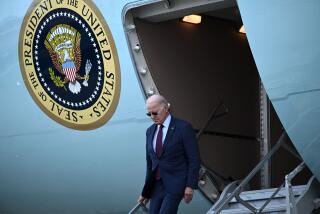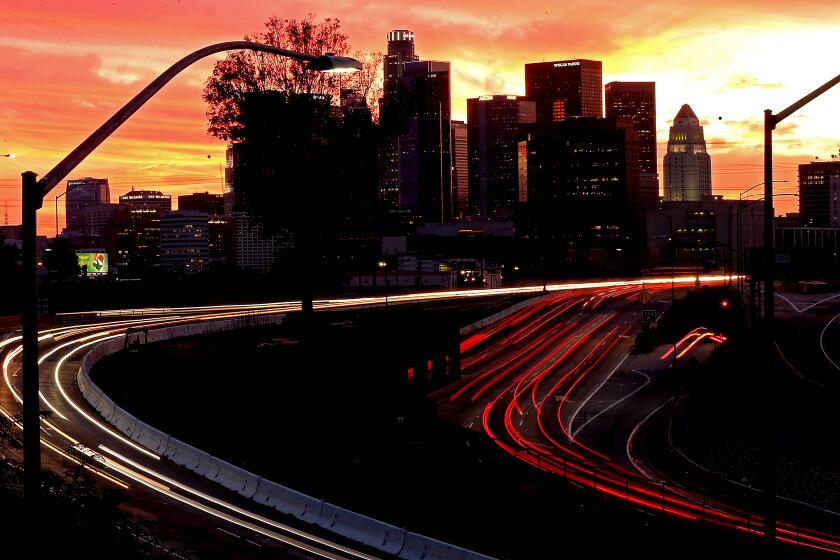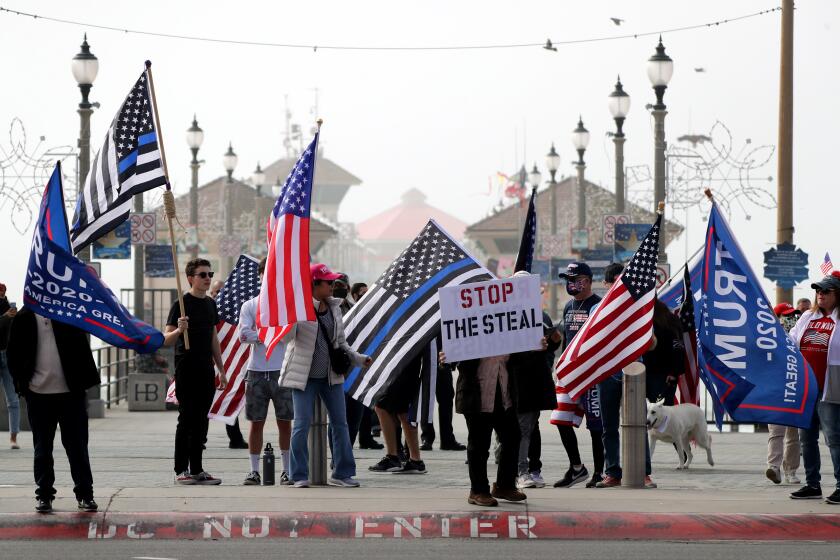Recession’s silver lining
Call it the gospel of hard times. With all this bad economic news, we’re starting to hear a chorus of voices preaching the cultural benefits of financial crises.
Surely it has reached your ears: A recession could force us to spend more time with our families. It could curb the excesses of our consumerist culture, make us learn to live within our means. Heck, it could purify our greedy capitalist souls.
A Temple University English professor even has pointed to all the great literature produced during the 1930s: James Agee, Nathanael West, Henry Roth. The list goes on. “If it’s true that adversity can bring out creativity,” the professor said recently, “then the Great Depression was one of the great creative periods of our time.”
Gee, too bad the housing bubble didn’t burst earlier!
All kidding aside, along with our abiding fear of hard times, there also seems to be a real hunger for, in Thomas Paine’s words, the times that try men’s souls. President-elect Barack Obama has earned stature points as he wraps himself in the iconography of Franklin D. Roosevelt and the New Deal. Two national magazines have gone along for the ride, mixing FDR’s patrician chin with Obama’s ears, topped off with spectacles and a cigarette holder.
But it’s more than just a presidential hero whom people are seeking. It’s the individual and collective heroism that adversity can sometimes inspire.
Obama’s rhetoric touches on that desire to pull together. “We have faced difficult times before,” he said Dec. 7 on “Meet the Press,” “times when our economic destiny seemed to be slipping out of our hands. And at each moment, we have risen to meet the challenge, as one people united by a sense of common purpose.”
Last week, a baby-boomer friend sent me an e-mail about how much he was looking forward to Obama’s inaugural address. “This country needs a sense of national purpose,” he wrote, “and I think that will emerge from the challenges of this terrible recession. ... This might sound weird for me to say, but I yearn to be led as an American. I am excited about the ways in which we’ll find our collective purpose. ... It is time for a new Greatest Generation -- you watch.”
OK, so he’s a romantic. But he’s not alone.
In some ways, all this redemptive talk in the face of the evils of capitalism ought to sound familiar. In a kind of regular “market correction” of the heart, Americans want to believe that it is possible to mitigate the sins of their own economic system. I’d go so far as to identify rituals we use, even in good times, to exorcise the demons and soften the harsh realities attendant on living and dying by the market.
Last week, I saw a community theater production of “A Christmas Carol,” and it finally struck me that what millions of Americans sit down to watch every year is the supernatural tale of a hyper-capitalist chastened into generosity and kindness. It’s not just about the money, Ebenezer! It’s about family and love and fat geese!
And don’t forget what is perhaps the most popular Christmas movie of all time, “It’s a Wonderful Life,” in which George Bailey reassures us that regular Joes can triumph in the never-ending struggle between self-interest and what’s good for the whole. The FBI labeled the movie “communist propaganda.” It didn’t understand that it was only one of the many narratives that we need to make capitalism more livable.
It’s in this same spirit that I think my friend and others are looking on the bright side of recession. They see this difficult moment as a chance to retrieve some moral clarity. I think they’re also hoping that the tough times will reinvent them.
We all know the adage that tough times make great leaders, but they also hold the promise of greatness for the rest of us. We look back on those who lived through the Depression with a certain amount of reverence. We wonder whether current generations can show as much courage under duress as previous ones have. What I hear in all the silver-lining talk is this: Contemporary Americans are eager to prove that they are up to their own make-or-break challenge.
grodriguez@latimescolumnists.com
More to Read
A cure for the common opinion
Get thought-provoking perspectives with our weekly newsletter.
You may occasionally receive promotional content from the Los Angeles Times.






